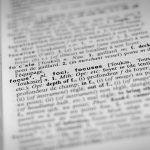When you’re just starting to learn a new language, you might hear the term “beginner language learners.” This term applies to anyone who is in the early stages of learning a language that isn’t their native one. Beginners can fall into two categories: ‘absolute’ beginners who have no previous knowledge of the language, and ‘false beginners’ who might have had some exposure to the language before but haven’t fully grasped it yet.
Beginner learners come from different backgrounds and have varied characteristics and learning factors. These can include:
- Whether they’ve learned another language before
- Their age when they start learning
- How they think and understand things
- What they already know in their first and second languages
- How well they can speak and read
- If they’re familiar with the writing system of the new language
- Their attitudes and expectations about the language and its culture
- How different they see their native language compared to the new one
- Their feelings about learning
- How they like to learn and the strategies they use
The way people learn can also be affected by things like how long they spend learning, where they learn (at home or abroad, in a place where the language is spoken or not), whether they have to follow a specific learning plan, and if they have tests or exams to take.
From the 1970s, the Council of Europe started figuring out what adults who are just starting to learn a language need to communicate effectively. They came up with what they called “threshold level” specifications for English, French, Spanish, German, and Italian. These specifications were like a basic toolkit of language skills that beginners should have before they move on to more advanced stuff for work or personal reasons.








